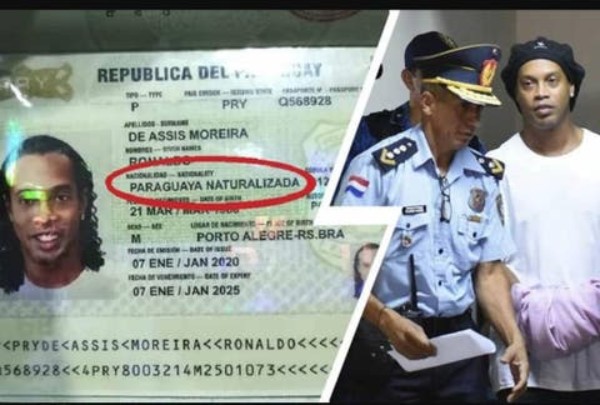
Ronaldinho Released from prison, after spending five months over a forged passport in Paraguay, Brazilian and Barcelona football hero, Ronaldinho was eventually sentenced to prison for a forged passport after Paraguayan judge convicted him.
Ronaldinho released from prison on Monday 24 August after Judge Gustavo Amarilla also released the brother of Ronaldinho, Roberto de Assis Moreira, who was held for one month in prison and another four months under house arrest on the same offence.
The brothers served 32 days in Paraguay prison before they were released on house arrest during the COVID-19.
In a statement, the Judge said:
The 40-year-old former World Cup winner “is free to travel to whatever country in the world he wants but he must inform us if he changes his permanent residence for a period of one year. He has no restrictions except for the fulfilment of reparations for damage to society.”
READ ALSO: Ivan Rakitic Celebrates Sevilla’s Europa League Victory
Ronaldinho accepted the terms of his release, which include payment of $90,000 in damages. His brother, who is also Ronaldinho’s business manager, must pay $110,000.
The judge explained that he was not issuing a “definitive dismissal” of the case but rather that Ronaldinho was benefitting from a “conditional suspension of the procedure.”
His brother was also given a two-year suspended sentence.
Prosecutors believe Ronaldinho had no idea about the fake Paraguayan passports but they said his brother de Assis Moreira was likely aware that the passports were false.
Before Monday’s trial the public prosecutor said that Ronaldinho displayed no “personal characteristics or criminal behavior that … would put society at risk.
“They flagrantly used a public document containing false content,” said Marcelo Pecci, one of the public prosecutors, who said it was a “very serious” offense.
Ronaldiho’s Brother De Assis Moreira must appear before a judge in Brazil every four months for two years and will have a criminal record.
“The situation at Ronaldinho is not the same as that of Roberto. He has no duty to appear before any Judicial Body in Brazil. He only has to record a change of address,” said Amarilla, who followed four prosecutors’ advice to eliminate the need for an oral trial.




